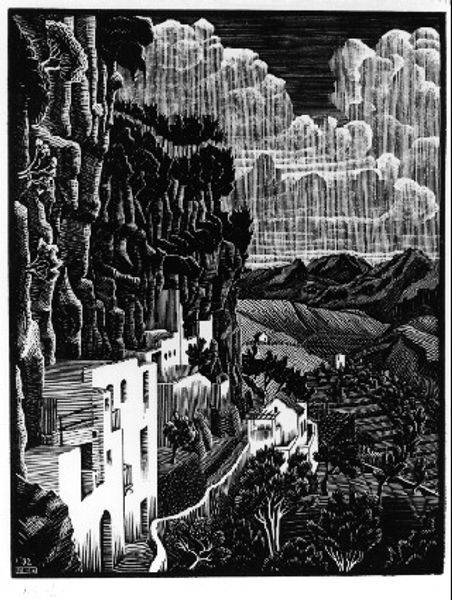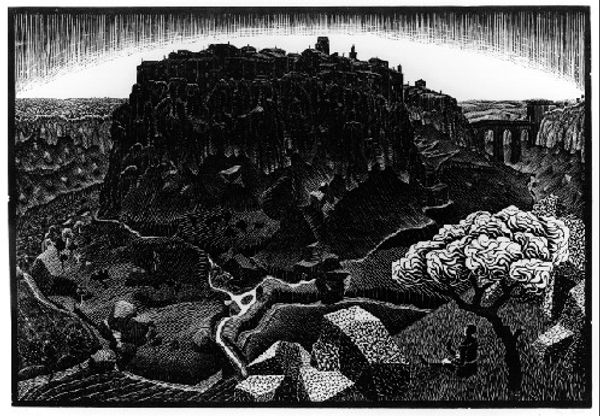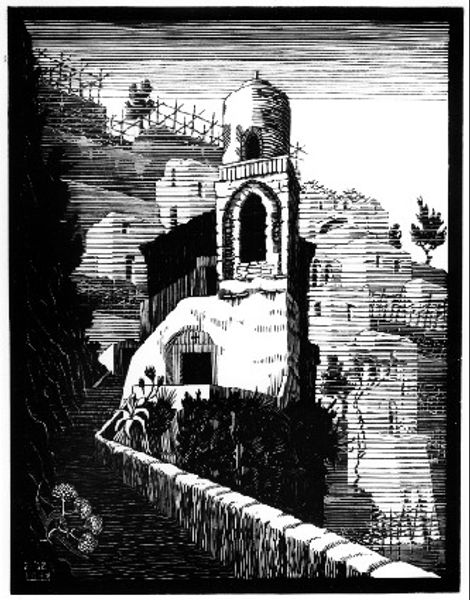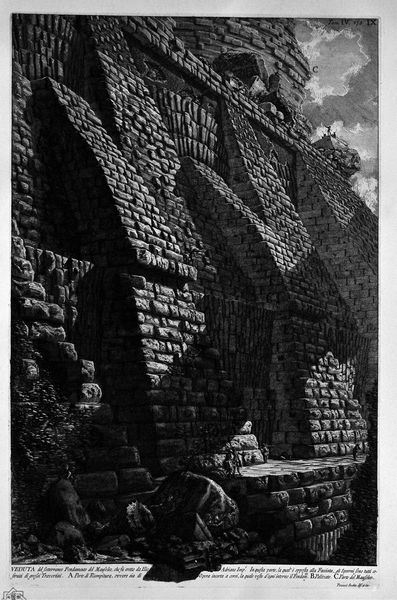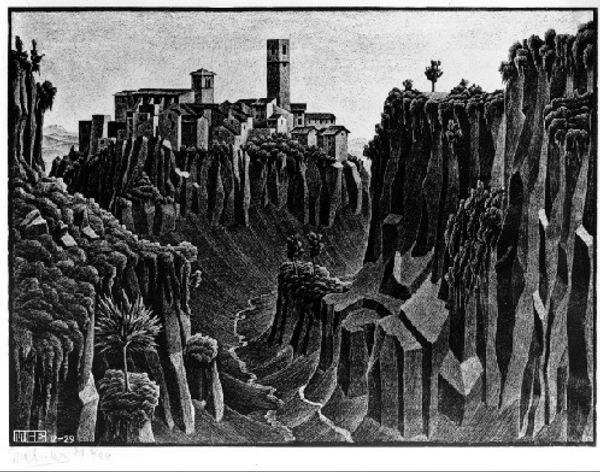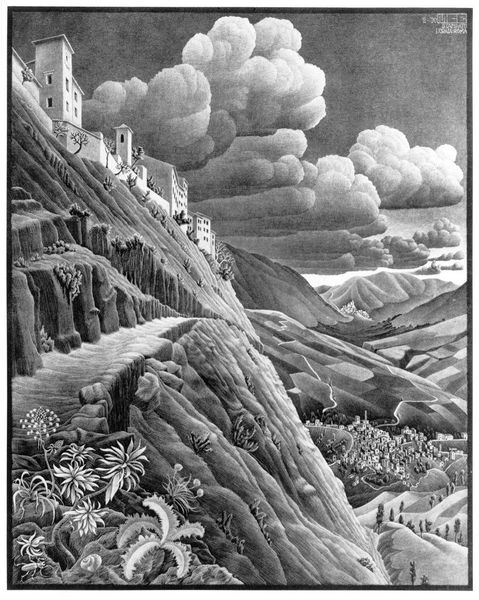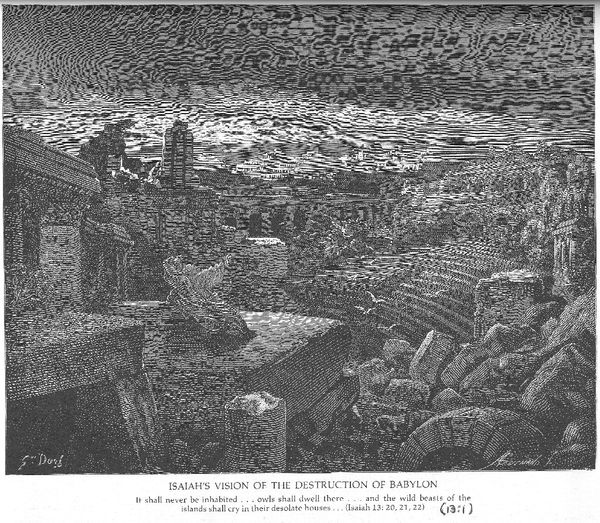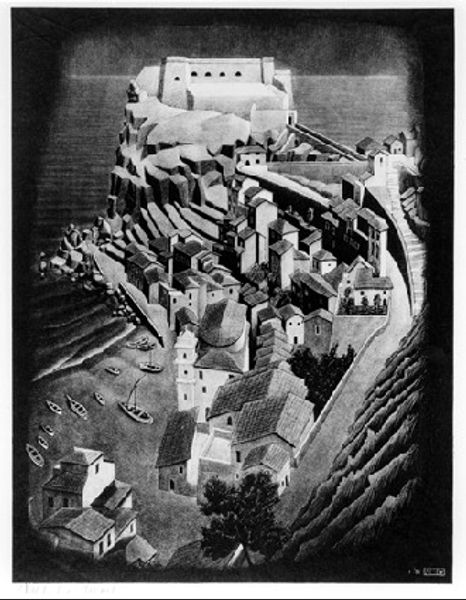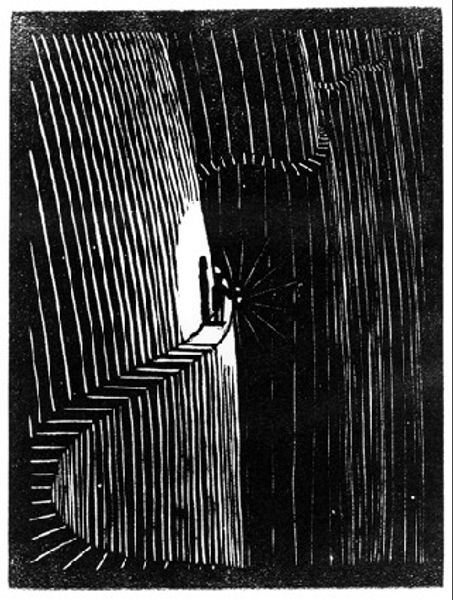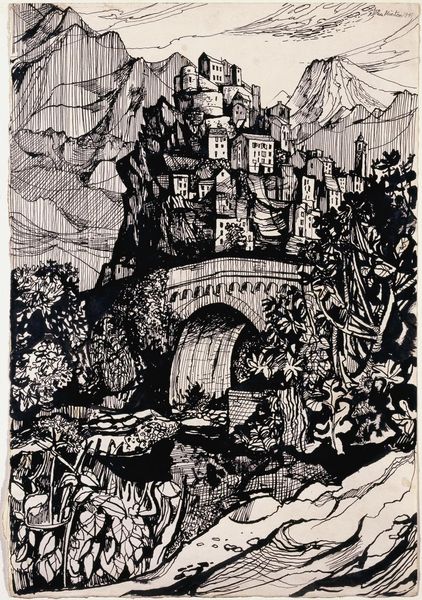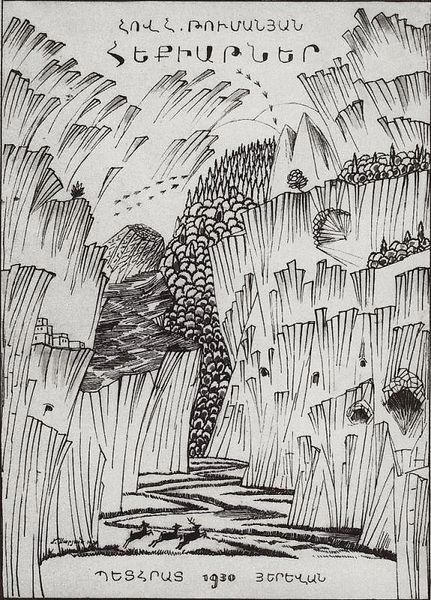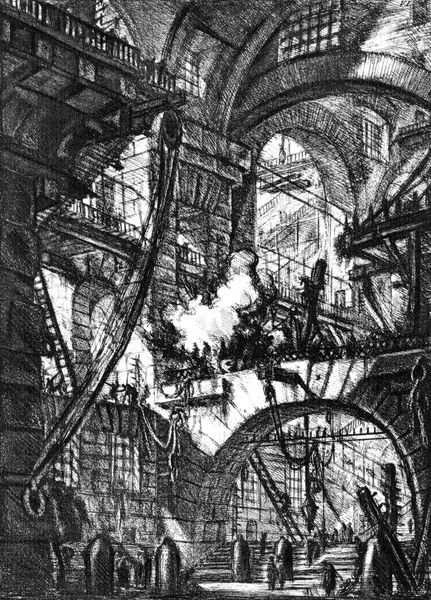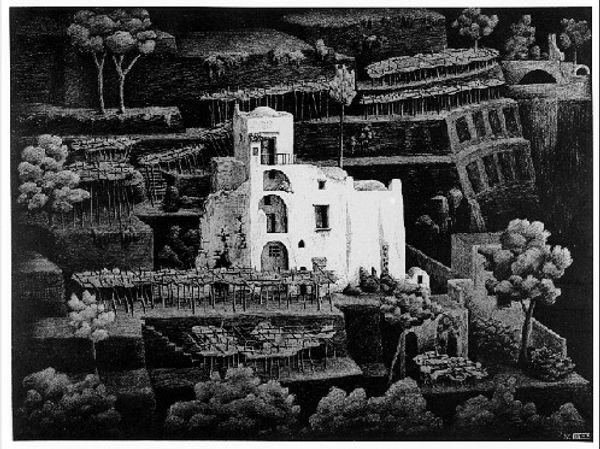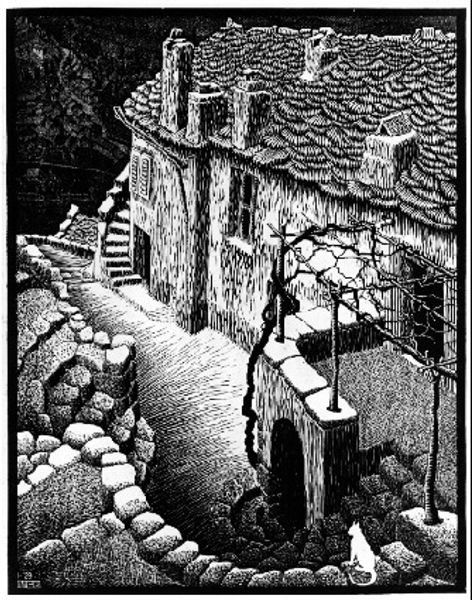
print, woodcut
#
art-deco
# print
#
landscape
#
geometric
#
woodcut
#
cityscape
#
modernism
#
building
Copyright: M.C. Escher,Fair Use
Curator: Looking at Atrani, Coast of Amalfi, a 1932 woodcut by M.C. Escher, my immediate sensation is… vertigo. A beautiful, slightly unnerving vertigo. Editor: I see intense labor. Look at that tight, controlled carving—every tiny white line scraped away from the woodblock by hand. The precision needed to render that architecture is something. Curator: Absolutely. The way Escher manipulates light and shadow with those stark contrasts, it almost feels like a tangible pressure, doesn't it? It’s more than representational, it's transformative. You feel the Amalfi coast isn't just a place; it's a feeling, almost a psychological landscape. Editor: Yes, and consider the tools themselves: the gouges, knives, and the block, probably made of pear or cherry. These weren't just art supplies, but tools shaped by history, trade, the very landscape they depict. We’re not just looking at a picturesque scene, but the convergence of materials and the artist's labor, a story carved in wood. Curator: True! The romantic in me wants to drift off into the serenity of the ocean view and the idyllic town. However, I realize Escher subtly captures the almost aggressive geometry of nature meeting architecture. Everything's neatly, obsessively constructed—the buildings, the hillsides. He is making sense, forcing clarity, when chaos should, in reality, be reigning supreme! Editor: Precisely. The finished print would’ve been one object in a much bigger economy. Consider the paper, likely mass-produced, and how a series of identical prints allowed for distribution, sales, maybe even influencing travel and perceptions of Italy. This image participated in its era’s machinery and culture. Curator: You've brilliantly grounded my ethereal wanderings with the grit of the real world! Thank you. For me, though, this work captures the soul of place, pushing representational boundaries and letting me find a harmony that is only Escher’s own. Editor: I leave today, grateful to reflect on labor.
Comments
No comments
Be the first to comment and join the conversation on the ultimate creative platform.
